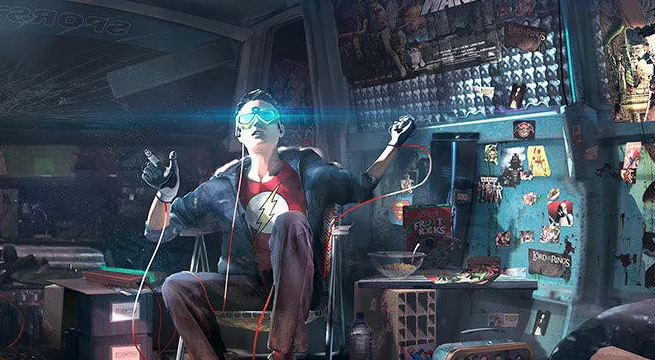MR isn't About Escaping Reality, it's About Connecting with People
As part of the Mixed Reality team at Mozilla, I've been watching the development and release of Mozilla Hubs with excitement. I've thought about using VR and AR for collaboration for years, going back to the work we did creating an AR client for SecondLife many years ago. Just last week, I wrote about why I found Hubs so exciting, and the idea of enabling new ways of creating social experiences was one of the core ideas.
When we look back in the future, I think we'll see that the most significant impact of social AR and VR will be on access; to people, places, experiences and situations. VR enthusiasts tend to talk about VR letting people go places they couldn't otherwise go and experience those places, but I think that will be a minor aspect of MR.
Instead, I think connecting people will be the biggest impact MR will have. Think about the time we spend flying places, attending meetings and conferences[1]. And the meetings and conferences we don't attend because of the time investment.
Think about the students who want to attend school (from K-12 through post-secondary) but can't because they can't get there, or afford to be there. Joining into remote venues via audio or video conferencing is unsatisfactory, at best (the reasons for which have been well studied), so that isn't typically an option that's made available to people.

Just this past month, the film version of Ready Player One was released, spuring peoples interesting in VR. Like most cyberpunk sci-fi, it paints a bleak picture of the future. One bright spot in the movie's vision of a future dominated by online VR is access: anyone can go anywhere, from the relative (dis)comfort of their home.
Using VR for meetings and education will be problematic for a while; mundane tasks, like taking notes and referring to resource materials during meetings and educational activities are likely to remain awkward for some time. But the beautiful thing about the Hubs design (and the software architecture it's built on) is that you can use it from any browser, letting the same software be used in different ways depending on the person, their preferences, and needs. Want to put a meeting in a window on your laptop so you can type notes while attending? Great! Want to dive in using full-VR to have an a more immersive inpromptu discussion? No problem!
I've always been more interested in AR than VR, and the potential of Hubs for creating social experiences that mix AR, VR, and traditional devices is exciting. It makes the worlds we build accessible to more people, and allows us to sidestep some of the problems with VR while still making immersive experiences possible to those who want them. And when AR devices become commonplace, it will be possible for people to join you and appear like they are in the physical space with you.
This sort of flexible mixing of MR modalities to create new kinds of shared social experiences is where I believe the true value of MR lies. And Hubs points a way toward this future, in a way that only web-based technologies can.
Going beyond access, think about the sustainability benefits to the planet. Less business people flying to remote meetings leads to a more sustainable future! ↩︎